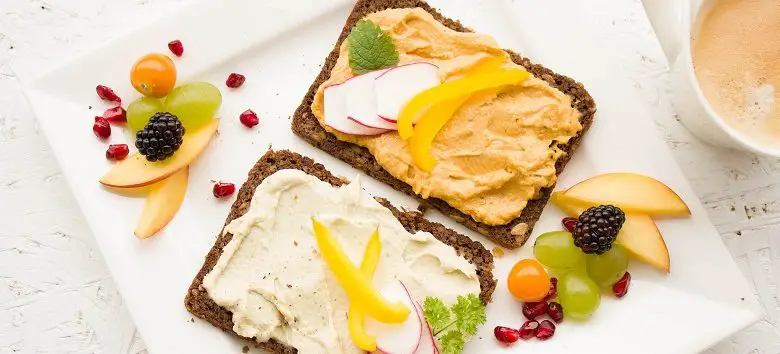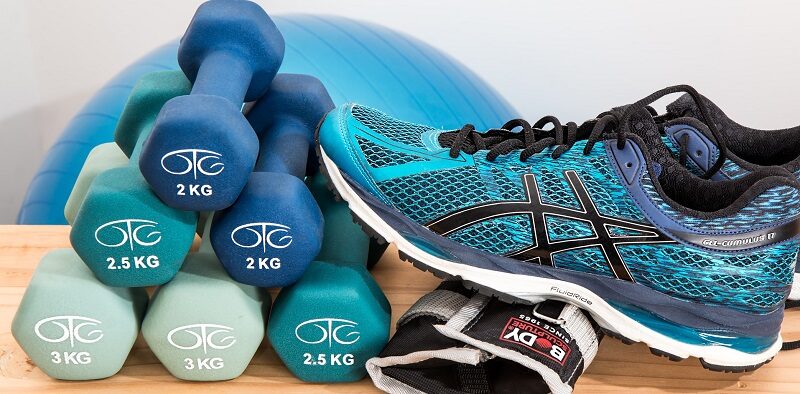
How to be a happier and healthier disabled person in 7 small tweaks
When it comes to improving your health and wellbeing, it’s often the small things you do regularly that can really make a difference. Here, Able magazine shares seven key lifestyle tweaks and explains how they’ll help, no matter what your disability.
If you’re looking to boost your wellbeing, sometimes less is more. We often aim too high when starting out on a new health and fitness regime, setting unrealistic goals that can be a struggle to maintain. And before you know it, your big health plans have completely fallen by the wayside.
The key to a long-term shift in our health and lifestyle is more often than not found in the smaller, positive changes we can make to our everyday habits that can add up to a big difference over time. Plus, the beauty of this ‘small tweak – big difference’ approach is that you don’t have to totally reorder your life and routine to get there.
To help get you started, here are our seven ‘micro-steps’ to a healthier daily routine:
1. Look carefully at your diet
Reviewing what you eat doesn’t necessarily mean a daunting new food regime. Simply looking at your daily diet to see where you can make some healthy changes for more balance at mealtimes can make a real difference to your health and wellbeing.
Knowing where you can make those key changes will give you a fantastic, quick win. Salt, sugar, saturated fats, refined carbs – these are all areas where you can swap over to healthier versions without losing taste or enjoyment.
The key is to aim for a balanced diet that you can still enjoy and look forward to and that allows you the odd treat.
Portion control is also something to look at – eating out, our meals are often twice the ‘normal’ size and at home. We can also often over-estimate what a healthy portion should look like. Make sure your total daily calorie intake needs to take into account your physical needs and activity levels.
2. Exercise
A full-on training programme is not appropriate for everyone and not always practical to fit into your everyday schedule. Rather than looking to the gym or personal trainer, why not look to build more activity into your normal routine.
Tailored to your own mobility, anything that gets you moving is a great lifestyle tweak to make.
The NHS recommends clocking up 150 minutes of aerobic and strength-building exercise every week. But how you tot up those minutes is totally down to you!
Break it down to 20 minutes spread across your day and it doesn’t seem so daunting.
For inspiration, read previous Disability Horizons articles: top 10 exercises for disabled people and 10 ways to keep fit and flexible if you’re disabled.

2. Get rid of bad habits
While moderation is a good rule, to make a long-term difference you really need to kick any bad habits to the kerb.
Smoking and excess alcohol, in particular, are both attributed to a range of health conditions, diseases and even early death. But stop or cut back now and the benefits can be significant.
Just one year after stopping smoking, you can reduce your risk of heart disease by half. You don’t have to do it alone.
The NHS runs local stop-smoking programmes and support groups so you can take the essential first steps to stub out a smoking habit. For more information, visit the quit smoking section on the NHS website.
4. Rest
Keeping active is a good lifestyle tweak, but you can enhance the benefits by also making sure you have sufficient rest. Experts believe that seven to eight hours of sleep per night is the optimum rest period to keep you well.
Sufficient sleep can boost your immune system, maintain cognitive function and allow time for your body to rest, recoup and repair. Plus, going to bed/waking up at the same time each day is known to keep your body clock stable.
You also need to go for quality sleep – that is the time you spend in the REM, deep sleep phase to be truly rested. If your sleep quality is below par, look at ways to tackle any disruptions.
Don’t eat or drink alcohol before you go to bed, turn off your mobile phone, invest in black-out blinds and keep electronics, such as TVs out of your bedroom, and you could soon be sleeping like a baby.

5. Reduce stress
Your stress levels can play havoc with your body, so making a few changes to handle stress will help to boost and protect your mental and physical health.
When you’re stressed, your body releases hormones, such as adrenaline and cortisol. If left unchecked, these can lead to high blood pressure as well as weight gain and raised blood sugar levels.
While you can’t always avoid stressful situations, learning how to relax and knowing how to ‘switch off’ will certainly make a difference to your overall wellbeing.
If you need a helping hand to relax and take some time out, practise daily meditation or look into mindfulness. The calming concept of being focused on the moment will help you to cope with those stressful situations.
You can download meditation and mindfulness apps to your smartphone so you can easily access relaxation sessions at any time.
6. Be sociable
Maintaining existing as well as creating new social connections is an essential tweak you should make to protect your health and wellbeing.
Both loneliness and social isolation are known to be harmful to our mental and physical health and can be as bad for you as smoking 15 cigarettes a day.
If isolation is becoming a problem, there are steps you can take to keep yourself socially as well as physically active. You can look to join a local club, either for an activity or sport you already enjoy or something you have always wanted to try. Check out the Parasport and Activity Alliance websites for ideas.
The noticeboard at your GP surgery or local community centre can be a mine of useful information and contacts. Or use social media to keep in touch with friends and family or to find local social groups.
DHorizons Tribe is a good place to start – it’s a closed Facebook group filled with people, like you, who you can connect with and get support from.
You can also search the internet for other activities that interest you. Book and film clubs, art classes, gardening opportunities at a local community allotment, exercise classes, yoga, rambling groups or wheelchair sports, etc.
Find something that inspires you and you will make like-minded friends that will keep you socially active and happy.
7. Create goals
Finally, the key to keeping your lifestyle tweaks on track is to set goals for your progress. So, if you want to be achieving your 150 minutes a week of exercise, be clear how you plan to get there.
Make sure your goals are also realistic and achievable, so you remain motivated along the way. And it’s a good idea to regularly review your progress to ensure you are heading in the right direction.
Keep your goals in mind, enjoy the progress you make, and you will soon find your small lifestyle tweaks become good, healthy habits in no time.
Keeping active is a good lifestyle tweak, but you can enhance the benefits by also making sure you have sufficient rest.
By Able Magazine
More on Disability Horizons…